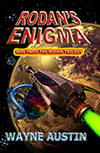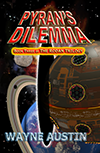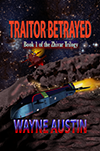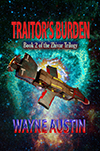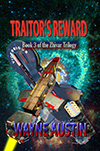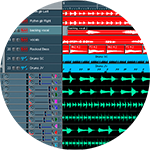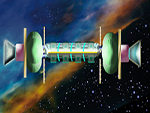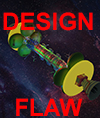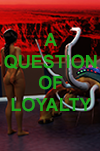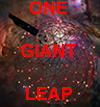
Intelligent Primates?
By Wayne Austin
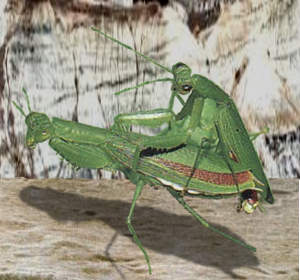
Professor Emeritus Pramantidis picked at the base of the layer of soft rock, easing it away, bit by bit, to expose more of the ancient foundation. Remains of ancient cities were rare — mere traces squashed flat in sedimentary rock. But dust and ash from a volcanic eruption had buried this city and left much of it intact.
Her new assistant, Mantissa, leant forward and brushed away the crumbled rock. “I wonder what Pogonomyrmex Giganticus looks like? Do you think we’ll actually find the remains of one?”
Pramantidis flicked her left antenna sideways and chittered. “I do, every night in my dreams.” She rocked back onto her hind legs and fluttered her wings. “Oh what I would give to find a trace of its carapace or even just an imprint frozen in the rock. All the evidence so far is circumstantial and therefore open to misinterpretation—”
“Intelligent primates!” Mantissa chittered and clicked her mandibles. “Really. Where did Agra get such a preposterous idea?”
“Now, Mantissa.”
“Oh. I’m sorry, Professor, I know he’s a senior member of your team and all, but really. His hypothesis just undermines your authority. You know, before I applied for this position, my professor tried to talk me out of it.”
“What?” Pramantidis flicked her antennae skywards and reared up like she had been stung. “But that’s ridiculous!”
How dare they question her ability? Jealous gossip and professional sniping behind her back was one thing. After having been voted the foremost paleontologist of her time, it was to be expected and she had studiously ignored the smarmy whispers with a suitable aloofness. She wasn’t a political insect and she had let her achievements speak for her. No one else had even come close to winning three Excelsior Awards and her textbooks were the basis of every paleontology course taught. But this...? When had the rank and file begun to question her judgement?
“I am still the pre-eminent authority on the extinction event between the Age of Mammals and the Age of Insects,” she grumbled. “My research is second to none!”
“I know, I know.” Mantissa crouched and lowered her head in submission. “That’s why I so wanted to work with you. But,” she worked her mandibles in and out of her mouth as she hesitated, “they thought it would be bad for my career to be associated with Agra.” When Pramantidis said nothing, she perked up her right antenna and eased into a sitting position.
Pramantidis lowered onto her forelegs and her antennae drooped. With her heart not in it she picked at the rock. “I know Agra’s ideas are ridiculous, but they are his ideas, not mine. I didn’t realize they were beginning to reflect on me.” She clicked her mandibles for a moment. It irked having a hard decision foisted on her, but it had taken years to build her reputation and it was such a fragile structure. “I guess that settles it.”
“What?”
“He has to resign, it will look better that way than if I have to sack him.” Her right antenna quivered. “I don’t know how I’m going to tell him,” she murmured, scraping away some rock. “We made such a good team. I couldn’t have gotten to where I am today without him. He has this knack of finding such good dig sites, but still....”
Pramantidis stared at the ground, lost in thought until she felt her decision harden to stone. She pulled back and turned to Mantissa. “It’s late, why don’t you get back to the campsite and join the others. I’ll be along in a while.”
Mantissa hesitated and held out a foreleg to touch the Professor’s abdomen. “I’m sorry I upset you. I know how close the two of you are and ... I’ve heard that ... at one time you were ... going to be mates—” Pramantidis stiffened and Mantissa snatched her leg away. “I ... I’ll see you back at the campsite.” She turned and skittered out of the pit.
Pramantidis stared at where Mantissa’s abdomen had scuffed through the crumbly rock piled up along the top of the dig’s ledge and then relaxed and returned to picking at the rock. To be honest, the decision had been haunting her for months now, only she had refused to face up to it. With a soft chitter, she felt a great weight lift off her. After this, the last dig of the season, she and Agra would go their separate ways.
All she had to do was tell him. She chittered under her breath. What had possessed him?
Intelligent primates? Ridiculous!
How could such a brilliant mind come to such a stupid conclusion? Pramantidis eased out a chunk of pumice and pushed it aside. The evidence was clear. Ants and termites had built sophisticated mounds and nests for hundreds of millions of years. Even bees and wasps. And everyone knew who had built these ruined cities. Everyone!
It was accepted fact.
Twenty-five million years ago, at the end of the Age of Mammals, a race of giant ants had evolved and built up a thriving technological civilization only to destroy it all in a nuclear, global catastrophe. A few miscreants still held to the belief that most of the mammals went extinct after the Earth collided with a giant asteroid, like the dinosaurs before them, but with no proof those scientists were in the minority. However, it was an undisputed fact — absolutely undisputed — that until recently, only ants laid trails. It followed that the creators of those ancient remnants of bitumen and concrete trails had to be ants. Had to be.
Pramantidis swiveled her head around to survey her excavation pit. And if proof existed anywhere, it had to be here.
Her pick struck something hard with a metallic clunk. For a moment, she trembled and swayed back and forth on her hind legs as the delicious excitement of discovery brushed away her bad feelings. Then, with the same delicacy that she had tended her eggs in the past, she chipped at the rock matrix and brushed it away. She had struck metal.
“Oh, wonder of wonders!” she muttered and steeled herself to not rush. As the sun sank below the horizon and the dig’s lamps came on to hold back the dark, her pick and brush worked to uncover a twisted metal plate, scarred and pitted and corroded, but definitely metal. And like a sheet, it was draped over a lump.
Pramantidis held her breath and scraped the rock away to expose a side of the lump where the sheet ended. More blackened metal appeared, and amongst it, a solid block — an engine. The pick trembled at the end of her foreleg. What a discovery. Engines were so rare, but to find one with the remains of its vehicle’s body intact, even if was crushed flat, why, this had to be the find of the century. At last, she had a chance to discover how Pogonomyrmex Giganticus traveled along the bitumenized tracks they had lain down in place of the chemical trails that their minute ancestors once secreted.
And to find it just where she had predicted. All she needed now was to find some remains of this elusive giant ant, even a fragment of its exoskeleton would do, to cement her place in history ... and kill all those whispered daggers aimed at her back. For a moment her anger flared, but it couldn’t dampen her excitement. She sat back on her abdomen, raised her two front legs above her head and chittered to the sky to let all the world know of her discovery.
Then, as if to answer, a thrumming, interspersed with chirps, erupted in the distance. Pramantidis stretched up and looked across the dig site to where lights blazed around a low hillock in the farthest corner of the site, an area not yet explored.
“Agra?” she cried out.
A triangular head popped up from behind the hillock and turned to stare at her. “Professor — Columbia!” he cried out, his voice rising with excitement. “You’ll never guess what I’ve found.” He clambered over the hillock and danced across the broken ground toward her, clutching something precious with his forelegs.
“What have you found? A fossil?” Her forewings fluttered and a tingle ran down her Metathorax.
Agra skittered to a stop and flared his wings to cool himself. “No, I....” He looked down at the tray in his pincers and his excitement tapered off. “I’ve found something that’s going to turn your world upside down.” He bobbled left and right like when he had gorged on those fermented berries that time they had gone hunting crickets. The tray tilted in his grasp as he offered it forward. “I was right! These cities were built by primates.”
Pramantidis rocked back and glared at the tray. “Agra! Why do you waste your time? Everyone knows there was no such thing as an intelligent primate, or any other mammal.”
“But we find their fossils everywhere we look.”
“That doesn’t imply intelligence. They were pests. We also find lots of other fossils ... cats ... dogs, rats and mice. Even cockroaches. These primates were just the largest of the parasitic scavengers that infested the cities. That’s why we never find any Giganticus bodies.”
“But what about all those burial sites? The primates buried their dead and the graves show order, ritual—”
”You don’t know that! My theory that they are the sites of battery farms where disease swept through and the bodies were buried in situ has been accepted as the most likely explanation.”
“But what about those metal tools we’ve found? There is no way any insect could use those. The primates must have created them. That implies intelligence.” He thrust the tray forward again. “And this is proof. Please, Columbia, have an open mind.”
“I guess it is possible the primates were capable of being trained to perform limited, menial tasks ... like guiding blind ants, but it’s all pure conjecture.” Pramantidis flicked her antennae as she hesitated. “Oh, I don’t know why I protect you! Everyone accuses me of being sentimental because I keep you on my team.” Agra clicked his mandibles, but didn’t back down. She stared at the tray long and hard, then snatched it from his grasp and held it up to shine more light on its contents, a thin sheet, colored brown, and featureless. “What is it? I can’t see anything.”
She tilted the tray to reflect the light and saw tiny symbols similar to larger ones found on some of the artifacts recovered at other sites and her mandibles clacked in shock. There were so many and they were packed tight in row after row. And to the side — she played the light across the surface to pick out some finer details — there was an image. The poor contrast made it difficult to interpret, but she could make out a boxy shape, resting on upturned half-circles. Another structure, full of transparent square openings rested on top.
Pramantidis trembled. “Is that ... one of their vehicles?”
“I think so,” Agra whispered. “And there’s a creature inside, I think is controlling it.”
Pramantidis rocked back and forth and bobbled so much, she almost dropped the tray. “At last, I can see what a Pogonomyrmex Giganticus really looks like. Oh, Agra—”
“It’s not a Pogonomyrmex Giganticus. I think it’s a primate. The contrast is so bad it’s hard to tell, but I’ll know once I’ve scanned it and enhanced the image.”
Oh why did he have to persist? She held the tray up close to her eyes. There was a vague outline of a round head and two arms. “No!” She stepped back and dropped the tray. It hit the ground with a thud and the sheet fractured into small pieces.
“Careful!” Agra dashed forward and picked over the fragments. “This is priceless.” Then he looked up at her and his voice softened. “I know this must be a shock, but think about it. Because we have little data, so much of our science is colored by our prejudices. Here is a chance to put our theories on a solid foundation based on fact. Help me. If we work together, we can turn the scientific establishment on its head!”
Pramantidis took a hesitant step forward and her antennae twitched and flicked back and forth. It was so hard to make anything out, she must have been mistaken, like Agra obviously had been. She bent forward and picked up a fragment, but it disintegrated as soon as she lifted it. “I’m sorry. This is ... was an incredible find.”
“But you believe me, don’t you? You saw—”
“I don’t know what I saw.” Pramantidis straightened up and drew her left antenna through her pincer, the act of preening calming her, while she pondered the evidence. Why did Agra always have to jump to the wrong conclusion? “The image was so degraded, I couldn’t tell. I—”
A moth, as big as Agra’s head, fluttered into the light and ambled from one lamp to the next as if unable to make up its mind. Pramantidis swiveled her head, following its every move. Hunger welled up in her. She clasped her pincers before her face and froze. Then, as the moth swooped close, she lunged and caught it, and with a bite to its neck, the moth sagged in her grasp.
After sucking in its juices, she sat back and offered the carcass to Agra. “Thanks,” he mumbled, “I haven’t eaten all day, I’ve been too excited to stop.” He sunk his mandibles into the flesh.
”Me too. We should get back before all the grasshoppers are gone.” Pramantidis picked between her mandibles to finish cleaning around her mouth and glanced sideways at him. How long had they been together, fifteen years? She had always maintained they were nothing more than close friends despite his none too subtle hints otherwise. Her antennae twitched. Why couldn’t he keep an open mind? “Maybe you are right, I’m not sure. But ‘maybes’ aren’t enough to overturn our current theories.”
Agra stopped sucking in the juices from the moth’s abdomen. “What do you mean? I had proof. Absolute proof.”
“To you perhaps. I couldn’t quite tell. But without physical proof—”
“That wasn’t the only sheet.”
“Oh?” Pramantidis flicked her mandibles in and out of her mouth and her antennae drooped. “You ... found others?”
Agra reared up and raised his forelegs to the sky as if to embrace the stars. “That’s what I wanted to tell you! I’ve discovered a carbonized mound over there. In a steel box in what must have been a storeroom. It’s incredible! The mound consists of sheets like this one, all stuck together. But I’ve managed to separate some out from within. They don’t all have pictures, but the ones that I can make out—” He fluttered his rear wings to produce a thrum and his antennae shot toward her. “There are primates everywhere. In the buildings, travelling in long vehicles, in flying machines — controlling them. And there’s not an ant in sight, gigantic or otherwise.”
Pramantidis sagged down and rested her forelegs on the ground. She would be a laughing stock once this got out, especially when Agra was proved wrong. Then who would want to work with her or fund her digs? “I ... I find that hard to believe.”
“And there’s another image you won’t believe.” Agra spun round, danced out of the pit and raced away toward his dig site. “I’ll get them,” his voice floated back on the air. “I swear, you won’t believe it!”
Pramantidis pushed herself up into a sitting position. Agra couldn’t be right, he just couldn’t. All those years to build up her reputation.... How could he do this to her? And to think she had once seriously considered letting him father a batch of children. There was no chance now. The image of that vague outline inside the vehicle returned to haunt her. No, there had to be another, more plausible explanation. Maybe.... She stood up and her antennae shot erect.
Pets. Why not? She had kept butterflies as a juvenile.
The idea didn’t seem so outlandish now that she thought about it. Added to the data from the primate burials, the idea of Pogonomyrmex Giganticus keeping primates as pets or work animals made perfect sense. Why the primates died in such neat arrays was one of those mysteries she might never solve, but ants today were very tidy — fastidious to a fault. And though they had a limited intelligence, they did keep other animals, like aphids, so it wasn’t such a big jump in imagination.
And there was no point in worrying about it. Pramantidis slipped the handle of her pick over her right pincer, twisted to lock it to her foreleg, and then bent forward to scrape the rock away from around the crushed vehicle. A glint revealed a shard of glass and her pulse quickened. Under her gentle tapping, the rock crumbled and she brushed it away. The shard stuck out from the vehicle’s body — proof that the only other shard of glass ever found, her big discovery at her first dig and which had made her name, did indeed belong to the vehicle associated with the engine she had found there.
She should have been happy, jubilant, filling the air with her chirps. The vehicles had glass windows to protect the occupants from the blast of air created by travelling so fast, while still allowing them to see where they were going. Just as she had hypothesized. Perhaps the windows slid sideways to open, or tilted in and out. She could find out now with Agra’s discovery—
Agra’s discovery ... why couldn’t it have been a giant ant inside? Her antennae twitched and her head drooped. She lifted her pick and let it drop. The point slammed into the precious shard and the glass shattered into a million pieces, scattered like the stars in the sky, like her dreams.
Then, as if to sour her mood even further, Agra skittered back into the pit and jerked to a stop while juggling a pile of trays.
With great care, he placed them on the ground. “You have to see these.” He picked up the top tray and offered it to her with trembling pincers. “The images are poor, but there is more detail. Please! Be careful with these. Some crumbled when I just looked at them.”
Pramantidis took the tray and held it up to the light. In the picture, lines of large structures towered into the sky on both sides of a bitumenized trail that was clogged with the box-shaped vehicles. Her antennae twitched. Primates crowded the gaps between the edges of the trail and the structures. There were so many of the creatures and yet they were all covered in different skins — were they the same species or a host of different species?
And there wasn’t an ant to be seen.
“Incredible isn’t it?” Agra eased the tray from her pincers and handed her another one.
With each tray, she said nothing, but her mind churned through ideas. There had to be a rational explanation. Her eyes took in the images, but the details didn’t register.
Perhaps Pogonomyrmex Giganticus preferred to stay out of sight; there were no pictures inside the buildings. Yes, that had to be it.
Or they were subterranean dwellers, or nocturnal — all the images were in daylight.
Agra picked up the second-to-last tray and held it out. “This is just so incredible,” he whispered.
Pramantidis glanced at the image with dull eyes and froze. Here was a flying machine with triangular wings that swept back either side of a pointed cylindrical body. And it had a bubble on the top, near the front. But in the bubble ... in the bubble ... two primates sat inside, one behind the other, both waving at her. Waving!
This was madness, a practical joke from the past. Or a hoax.
Her mandibles worked back and forth, in and out of her mouth, but the questions remained stuck in her throat. Agra eased the tray from her trembling grasp.
“And if that hasn’t convinced you, this will.” He pressed the last tray into her pincers.
She held the image up to her eyes and her antennae whipped back and forth. This didn’t make sense. Despite the ravages of time, some of the color still remained. A primate body, swathed in white and with a bubble on its head, floated in a blackness that separated a triangular craft from a blue orb decorated with white swirls.
“I ... I don’t understand. Where is it?”
“In space. That’s the Earth as it was twenty-five million years ago. Look.” Agra ran the tip of his pincer along a soft dark line, separating faint blue from faint brown. “This is the edge of a continent— I don’t know where at the moment, sea levels were much lower then. And these,” he pointed at some brown spots in the blue, “are islands.”
He took the tray from her and placed it on top of the others with great reverence, then fussed over them like a doting parent.
“In space?” Pramantidis croaked. “I don’t see how that’s possible.” Everything she had worked toward, her prestige, her position in the paleontology community, it was all swept away by those fragile sheets. Who would believe it? Who would want to believe it?
Agra picked up his trays and turned to leave. “Wait until we publish these. And there’s more, so much more!”
A chill swept over Pramantidis. He had to be wrong. It was all in the interpretation and those images could be so easily taken out of context. If Agra wanted to commit professional suicide, that was his decision, but to drag her down with him, even if it was only by association? No. Even love had its limits.
Even love.... An idea insinuated its way into her thoughts.
“Agra!”
He stopped, halfway out of the dig, and swiveled his head back toward her. “What?”
“I ... this is incredible, such a special find, I ... I want to celebrate. Now.”
His antennae flicked erect. “What? How?”
She curled up the end of her abdomen and sprayed the air with pheromones.
Agra half-twisted toward her before he caught himself. “You want to mate, now? After all this time? Can’t it wait until I’ve stored these safely?”
“No.” She sprayed more pheromones.
Agra stumbled down onto the floor of the pit as if his legs were acting of their own accord, as if he was drawn to a magnet. Pramantidis turned around to let him climb onto her back.
“Please, Columbia!” He reached out a tentative leg and touched her abdomen, stroking with the softest of caresses. “This is important to me.” With an effort he crouched down and eased the pile of trays onto the ground.
And then he leapt onto her back. As the tip of his abdomen curled down and linked with hers, he reached forward and stroked her body with his forelegs. She shuddered with ecstasy as his climax approached.
Then, as Agra reached that peak, she twisted round, grasped his thorax in both pincers, and pulled him forward for what was an outdated, but still the ultimate expression of love that a male could aspire to. If he did love her as he had so often professed, how could he refuse her?
He twisted his head around to stare at her, his mandibles quivering. “What are you doing, Columbia?”
Then he jerked and his body shuddered as his sperm pumped into her body.
“I’m hungry, so hungry.” She moved a pincer to grasp his head and expose his neck to her jaws.
Agra tensed, but didn’t resist. “Promise me one thing, Columbia. Publish my discovery. The truth is what is important, isn’t it? Promise me!”
“Yes, my darling.” As Agra climaxed, she bit into his neck. Agra’s body spasmed, but even in death his body still pumped sperm into her. She bit into his head, chewed and swallowed. “The truth is what is important, and absence of proof is not proof of absence.” She hauled his body off her back and feasted some more. At least their children would inherit his brilliance, but not his ideas. Heretics had no place in science.
After cleaning her jaws, she picked up the sheet from the tray on top of his pile and crushed it between her pincers. The delicate sheet crumbled to tiny fragments and rained to the ground. Then she picked up the next sheet and worked through all of them, crushing each with a meticulous care that Agra would have been proud of. After the last sheet, she picked over the larger fragments, reducing them until no evidence remained.
The deed done, she paused, halfway out of the pit, and looked back at Agra’s body. What a shame, they had made such a great team. But really, what had possessed him?
“Intelligent primates? Ridiculous!”


